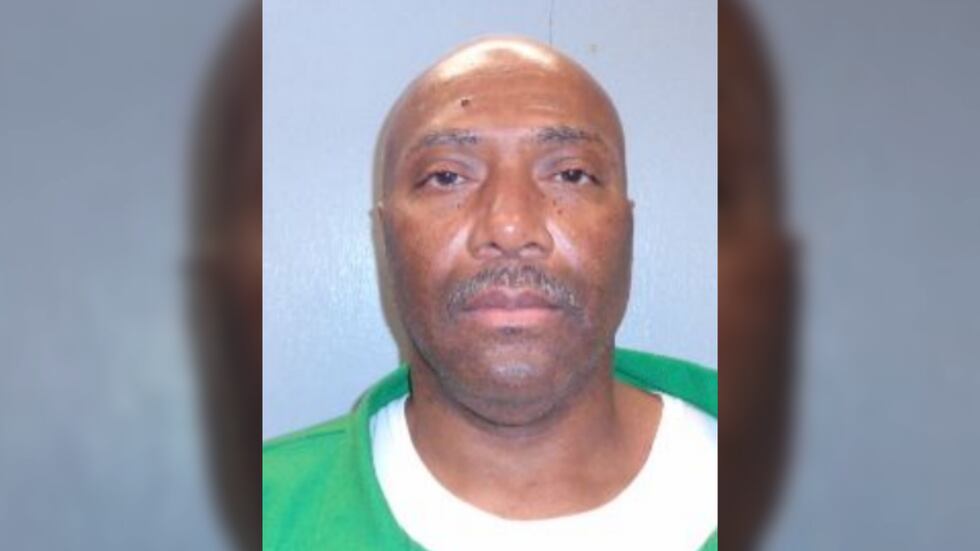Federal judge denies S.C. inmate’s request as execution nears
COLUMBIA, S.C. - A federal judge has denied South Carolina death row inmate Richard Moore’s request to have the state’s parole board review his clemency application instead of the governor.
Moore was convicted and sentenced to death for various crimes stemming from a deadly store robbery in Spartanburg County that happened in September 1999.
Moore filed the action for preliminary relief and for the court to declare it unconstitutional for Governor Henry McMaster to consider his forthcoming clemency petition.
He is scheduled to be executed on Nov. 1, and chose to die by lethal injection.
The execution of Moore, who is appealing to the U.S. Supreme Court to stop it, would mark the second in South Carolina after a 13-year pause that began because the state could not obtain a drug needed for lethal injection.
Man sentenced to life for Allendale murder of transgender woman
A man convicted in a federal hate crime trial for the 2019 Allendale murder of a transgender woman was sentenced to life in prison on Thursday

Moore, 59, is on death row for the 1999 killing of clerk James Mahoney. Moore went into the Spartanburg County store, unarmed, to rob it and got into a shootout with the clerk after taking one of two guns from him, authorities said. Moore was wounded in the arm, and prosecutors said his blood was found on Mahoney’s body as he stepped over the clerk, looking for cash.
South Carolina Corrections Director Bryan Stirling said the state’s electric chair was tested last month, its firing squad has the ammunition and training, and the lethal injection drug was tested and found pure by technicians at the state crime lab, according to a certified letter sent to Moore.
Moore will be put to death under the state’s new lethal injection protocol that uses one dose of pentobarbital, similar to the federal government’s execution method. The state had used three drugs for executions in the past.
Executions resume as Moore’s ers fight for his life
South Carolina ended a 13-year pause on executions last month with the lethal injection of Freddie Owens. Moore is set to be executed Nov. 1.
Moore’s lawyers have urged the U.S. Supreme Court to stop the execution, saying a lower court should review whether it was fair that no African Americans were on the jury that considered Moore’s fate in Spartanburg County, which was 20% Black in the 2000 U.S. Census.
Brother of UGA murder suspect’s sentencing canceled
Diego Ibarra, the brother of the man charged in the death of former University of Georgia student Laken Riley earlier this year, was set to be sentenced Monday after he pleaded guilty to charges he possessed a fake immigration document.

They also hope Moore will become the first South Carolina inmate whose death sentence is commuted to life without parole since executions in the U.S. resumed in 1976.
Only South Carolina Gov. Henry McMaster can grant clemency. A former prosecutor, McMaster didn’t grant it for Owens and has said previously that he tends to trust juries and the court system.
Moore’s lawyers said McMaster can’t fairly decide whether to reduce his death sentence to life in prison because he was a state attorney general who oversaw prosecutors fighting Moore’s appeals and McMaster told reporters he had no intention of commuting a sentence in 2022 when an execution date was set for Moore and then canceled.
They want a judge to instead give clemency power to a parole board, the lieutenant governor or someone else they believe is more likely to be impartial.
But Judge Mary Geiger Lewis said she is averse to take away the constitutionally given right to the governor alone to decide clemency in South Carolina and thinks McMaster will carefully consider Moore’s petition when it is filed.
Moore’s family and lawyers contend executing Moore is too harsh a punishment. In a state where the governor and prison director have made a priority of getting inmates to turn their lives around, Moore’s spotless record behind bars and his reputation for helping other inmates merits a reprieve, they say.
“He’s very remorseful and sorry for the horrible, tragic decisions he made in his life. But he spent the past 20 years really trying to make up for that by loving the people he still has in his life,” attorney Lindsey Vann said.
Prosecutors push for death penalty 25 years ago
Moore killed clerk James Mahoney, 40, a man with some disabilities who loved his family and tried to take care of co-workers.
The prosecutors in Moore’s case included Trey Gowdy, a Republican who later served four in Congress, and Barry Barnette, currently the solicitor in Spartanburg County. Both have declined comment, with Gowdy saying the 1999 trial speaks for itself.
In asking the jury to sentence Moore to death, Gowdy reminded them of Moore’s criminal record for stealing and robbing to gain drug money.
Man accused of giving 11-year-old a sexually transmitted disease
An Orangeburg man was arrested last week after authorities said he gave an 11-year-old girl a sexually transmitted disease, according to an arrest warrant.

He focused on how after shooting Mahoney, Moore — also shot in the arm in the struggle — walked over the dying clerk’s body looking for cash.
“The hopes and the goals and the dreams of a 40-year-old man are coming out of his heart, and the cold, wet drops of blood of a career criminal are dripping on his back,” Gowdy said. “There is a time for mercy, ladies and gentlemen. That time has come and gone.”

Defense team’s problems with the original trial
Moore’s ers said the trial represents plenty that is wrong about the death penalty in South Carolina, how arbitrary it is because prosecutors can make political points by bringing a number of death penalty cases when the cases don’t represent the worst of unrepentant, cruel and heinous criminals.
And then there is the problem of a jury without Black representation, Vann said.
“I’m really struck by the image that I’ve had of Richard’s trial where there’s a white prosecutor, white judge, white defense attorneys, an all-white jury and he’s the only person in the room who is African American and he’s being judged by a jury who has no one who looks like him,” Vann said.
Moore has had two prior execution dates, both postponed at a time when the state only had the electric chair and a firing squad. Since then, lethal injection has been added as an option, aided by age of a law allowing suppliers of lethal injection drugs to remain secret.
Copyright 2024 WRDW/WAGT. All rights reserved.













